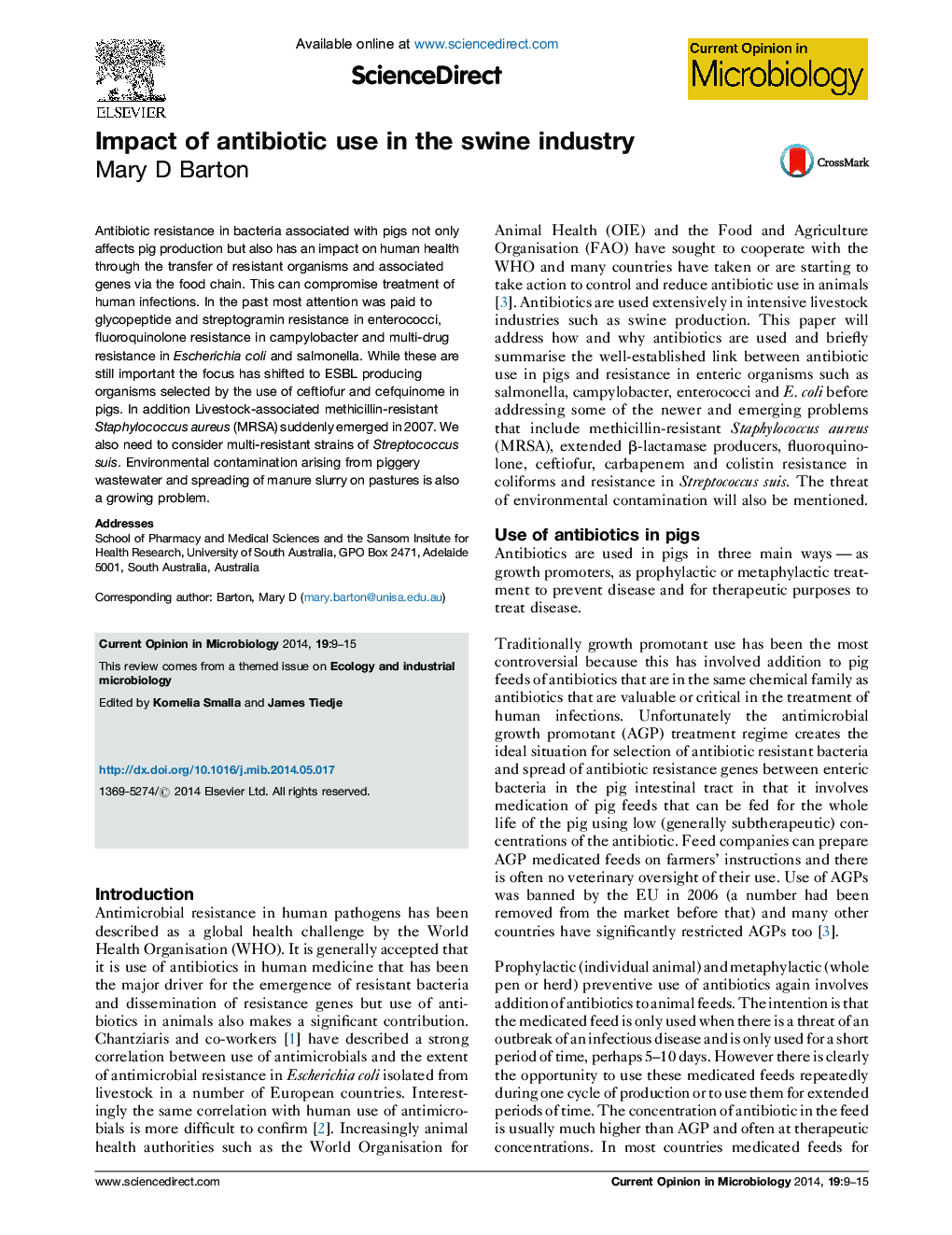| Article ID | Journal | Published Year | Pages | File Type |
|---|---|---|---|---|
| 6131998 | Current Opinion in Microbiology | 2014 | 7 Pages |
Abstract
Antibiotic resistance in bacteria associated with pigs not only affects pig production but also has an impact on human health through the transfer of resistant organisms and associated genes via the food chain. This can compromise treatment of human infections. In the past most attention was paid to glycopeptide and streptogramin resistance in enterococci, fluoroquinolone resistance in campylobacter and multi-drug resistance in Escherichia coli and salmonella. While these are still important the focus has shifted to ESBL producing organisms selected by the use of ceftiofur and cefquinome in pigs. In addition Livestock-associated methicillin-resistant Staphylococcus aureus (MRSA) suddenly emerged in 2007. We also need to consider multi-resistant strains of Streptococcus suis. Environmental contamination arising from piggery wastewater and spreading of manure slurry on pastures is also a growing problem.
Related Topics
Life Sciences
Immunology and Microbiology
Microbiology
Authors
Mary D Barton,
